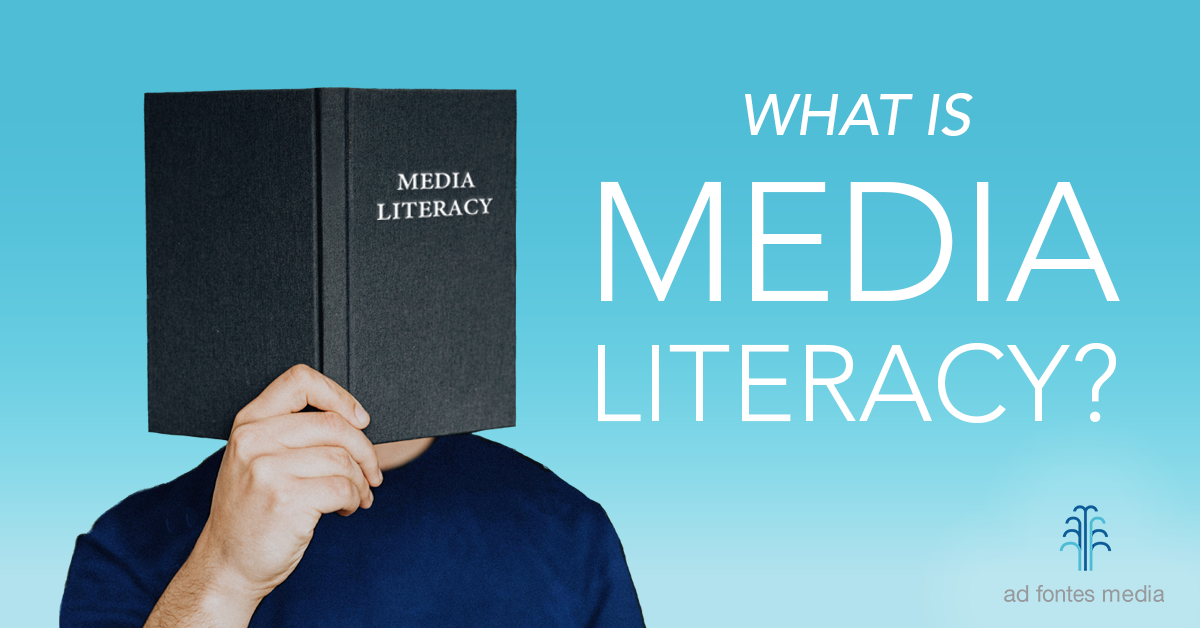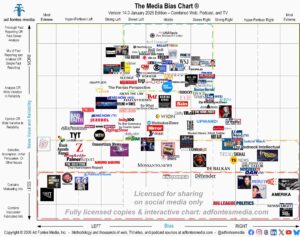
What is Media Literacy and Why is it Important?
Author:
Sara Webb
Date:
04/22/2021
It’s easy to get lost in the simplicity of a definition, but let’s break it down. There are two components to media literacy: media, or the medium that transmits the message, which can be anything from a social media site to a newspaper or even a candy bar wrapper; and also literacy. If you are literate, it is generally understood that you can read and write – but if you look back to its Latin roots, literate means educated or learned. This suggests that media literacy is for all of us, especially as our media landscape becomes rapidly more complex and confusing. So, “What is media literacy, and why is it important?” There you have it – “the ability to read and understand different types of media in order to navigate today’s confusing media landscape.” Thank you for coming, please visit the gift shop on your way out.
Still here? Brilliant. Because the definition goes so much deeper.
Media Literacy Can Help You Find Elvis Answers
At its essence, someone who is media literate is able to look past the surface message of what is being marketed or reported to see the layers of nuance underneath. They can parse the wording and the phrases for deeper meaning, they are not afraid to use the internet to understand a new term or concept, and they employ lateral reading to check the potential validity or biases of a source or a story. Was Elvis recently seen in a New York City diner? A quick internet search for some keywords reveals… maybe. Not the best example, perhaps – he wasn’t not seen, after all. A media literate person recognizes that it’s impossible to prove a negative.
Media literate folks also realize that there is never going to be a moment of nirvana that signifies they are a media literacy guru, and that they can stop learning and exploring: quite the opposite. As the media changes and grows, so must we, its readers and consumers.
It is quite similar to sitting in class and realizing that the story you just read is talking to you on several different levels. Sure, you might have read a fable about a tortoise very improbably beating a hare in a race, but the message (slow and steady wins the race!) is what you’re really in it for. Here, too, your skills at deciphering those messages improve with time and practice. You cannot just dive into Douglas Adams’ The Hitchhiker’s Guide to the Galaxy and immediately pick out that the Answer to Life, the Universe, and Everything (which is 42), is actually the ASCII code for an asterisk – which in computer speak, means anything. Finessing those details from a great book requires a range of skills, and you have to build them up, layer by layer: after you know how to read and write, and as you learn more about the world, you begin to read stories that are more complex, and that complexity continues to grow. Of course, nowadays we can hop on a Reddit thread or look in a Wikipedia entry to find a quick answer, but that does not necessarily reflect understanding of a topic (though it certainly can help).
Media Literacy is Like Cake
In much the same way, media literacy is an acquired skill, and it includes many components. The advocacy organization Media Literacy Now says that media literacy is an umbrella term that includes mental exercises, such as:
- Thinking critically about the media we see;
- Realizing that we are not just consumers of information, but creators, too; and
- Understanding how media messages shape our culture and society.
Critical thinking is a skill that you can work on, definitely. Not sure about humanity’s relationship with media? You can pick up a book about mass communication or find a TED talk to explain it. But that last point, about understanding the complex relationship that media messages have on our bodies, minds, and souls? That one is a bit trickier. It is going to take a bit of work, and a bit of time, but you’ll be much better for it. So how do you work on that?
Break it down. Want to learn to make a cake? Ride a horse? Build a rocket and fly to the moon? Break the processes down into smaller steps that are easier to achieve, and build on those successes.
Some Resources for Getting Started
It doesn’t hurt to have a guide. If you have a school with a good library program, or an English or Journalism or History or Communications teacher (or any subject; media literacy is universally relevant) who can scaffold some media literacy skills, that is fantastic. If you do not, that’s okay too. Getting started on your journey is the most important part, and finding the right resources is a great first step.
In addition to helping us define media literacy, the folks at Media Literacy Now offer lists of resources for getting started: for educators, for parents, and by topic, including for lifelong learners. These include our own resources for educators and individuals, as well a wide range of additional curricula and guiding frameworks.
Having these types of methodology for analysis is useful and versatile. They give educators, students, and news consumers a vocabulary and conceptual framework to address news bias and reliability. They help cut through the buzzwords (“fake news,” “mainstream media”) and present a platform to let users discuss the issues that can be so difficult to talk about in our divisive political climate.
A Shifting World
Becoming media literate is not easy, and it is something we need to keep working on. Everything about it will change: the way we consume media, the language we use to describe people and events, even the political ideologies that color the stories we read. But starting that journey as someone in possession of a particular skill set will make the journey a little more fun.
Sara Webb
Sara Webb is a cybersecurity consultant and former high school librarian from Philadelphia, PA. She holds an M.S. in Informatics and an M. Ed in School Library and Information Technology, and has been a media literacy educator for over a decade. Sara started with Ad Fontes Media in July 2020 as a Media Analyst, and she currently continues in that role and as in-house Media Literacy Specialist. When not engrossed in media literacy projects, Sara can be found at the barn with her ex-racehorse Homer, or training her corgis for dog agility competitions.


